|
Rated R for "Ridiculous in Every Way". Well-deserved R.
DIRECTOR: Russell Mulcahy I had a conversation with some of the other Villa teachers about which movies for our youths we didn't think would hold up. I had a weird youth, guys. The Highlander film franchise was a weird obsession for me in high school. I can't stress how much I liked these movies. The best I can do is say that I had a quote from Highlander 2 for my senior yearbook quote and Highlander 2 is considered one of the worst movies ever made. Yeah, I was right about this movie not holding up. But I also don't want to dismiss the movie altogether. The real first review on this website was for a documentary named Electric Boogaloo: The Untold Story of Cannon Films. My wife made me take it down because she was justifiably concerned that students would want to watch the documentary. The long and short of the documentary is that Cannon Films made some of the schlockiest films of the '80s by just filming a ton of sex and violence. Now one thing I didn't realize is that Highlander was a Cannon Film. When that production company logo popped on screen, everything about this movie made a lot more sense. Probably the nicest thing someone can say about the original movie is that it is extremely disjointed. It's framework is something brilliant, but many scenes in this movie don't make a lick of sense. The story surrounds Connor MacLeod (of the Clan MacLeod, born in Glenfinnin...you know what? I've established that I know this movie. I don't need to prove anything else), a clansman exiled from the MacLeods for being in league with the devil after surviving a fatal wound. MacLeod, played by Christopher Lambert, meets Juan Sanchez Villa Lobos Ramirez, portrayed by Sean Connery. MacLeod discovers that he was born Immortal, unable to be killed shy of having his head severed from his body. When there are few Immortals left, he will be called to a gathering and be driven to kill the other Immortals. (I now sound really silly typing this out.) MacLeod must fight and kill the Kurgan, a Russian psychopath who killed Ramirez, to become the last Immortal. Yup. The movie fundamentally works with its tale of a man experiencing history without fear of death. There's something touching and fun about seeing a 1700s Connor MacLeod travel the Scottish Highlands. He interacts with history, dealing with the French Revolution and World War II. His friendships are interesting and Cannon spent some money to film on location. Add to that an amazing soundtrack mostly provided by Queen and the movie is pretty darned cool. It's actually in its A story that the story is just a mess. The fighting in New York is weirdly aimless and so over-the-top that it comes across like the wrestling in the opening sequences. And that's the tonal choice that makes this movie a Cannon film. Walls explode just from light touches. Every sword clash creates sparks because the actors were hooked up to car batteries. The city is every dark city ever, without a real personality. Really, the movie just overloaded every moment it could with cliches. So on one half, we have a really cool look at one man's first hand experience with history. On the other, we have a violent, sex-filled slaughterfest with jokes that don't really land. The casting is also absolutely bizarre, but I secretly celebrate this choice. Christopher Lambert plays a Scotsman who almost isn't trying to do a Scottish accent across from a Scotsman playing a Spaniard who isn't trying to do a Spanish accent. For the first time ever, I noticed that Connery even tries to swear in Spanish and it is just adorable. I'm not saying don't watch this. But this movie is a time capsule. These are the movies that devolved into Sharknado. These movies are unabashedly kitsch, but they need to exist. This movie shot for greatness out of the dreams of a film student who received affirmation and it is super fun for what it is. For a guy who hates reboots, I wouldn't mind a classy, big budget reboot of Highlander. There is something there, but it has a lot of garbage covering it up.
0 Comments
Um...unrated by default. Let's say this right now. If you show this to a young audience, you have a lot of explaining to do.
DIRECTOR: Alan Crosland Do you know how hard it was to find a high res still from The Jazz Singer that wasn't a picture in blackface? I'm sure that Villa Madonna Academy doesn't want an advertising tool brandishing Al Jolson in blackface. But maybe I'm just contributing to the problem. After all, it kind of has the association with blackface. Am I whitewashing history by putting that photo up there? I don't know, but I have a feeling that I'm going to be discussing that pretty heavily in this critique. Most of the movies in our curriculum I have seen previously. It may have been a while, but I've seen most of them. Believe it or not, I've ducked the outright racist ones in the group. It was this and Birth of a Nation that completely flew under my radar, but that was actually by choice. So I had to sit down and full on screen these movies before preparing them for my class. I taught one year as a social studies teacher previously and that was World History. Having to deal with the ugly side of American sociology is new to me outside of literature. I thought I was prepped for racism once I had gotten through Birth of a Nation. Let's establish this right now, Birth of a Nation, hands-down, no-contest will always win for "Most Racist Piece of Historical Garbage" I'll ever watch, but does this mean that I should be forgiving of things that are far less demoralizing. The big thing is that I thought I was prepped. Most of the movie is actually fairly touching. There's a weird sense of irony that pops up looking back at history. The theme of the movie involves the respect for culture. Jakie Rabinowitz abandons his family legacy of being a Jewish cantor to pursue his dreams of becoming a Broadway star. It crushes his father's heart and he disowns him. When it comes to his father's final wish, Jakie must decide between embracing his Jewish heritage or finally getting the dream he has been working towards. Mind you, that dream involves blackface and singing "Mammy". *sigh* I've been through this with Holiday Inn and The Marx Brothers! Can a movie be good and still include such awful moments? I mean, I have to show this movie to my class! It's the first talkie! (More on that later.) There seems to be value. I mean, The Jazz Singer established a trope of abandoning culture for success. The movie is actually fairly touching at times. And then he had to blackface the crap out of this movie. I actually thought I could handle it. I mean, I knew it was coming. The still of Jolson down on one knee is part of cinematic history. I thought that the movie couldn't be that bad. But then it showed up and I instantly got soured on the whole thing. The parts of the movie I enjoyed didn't hold up to this moment. It's odd trying to appreciate art but also involve one's own sensibilities and cultural norms. Anyway, I suppose I should move on. I hinted at the fact that his movie, like Birth of a Nation, survives history because of the innovation that went into this movie. After watching Singing in the Rain and reading Chaplin's thoughts on the novelty of sound, I had to wonder why they thought that. And now it all makes sense. The Jazz Singer treats it as a novelty as much as they thought. Very little of this movie is actually a talkie. This really is a silent movie with a couple of moments of singing / speech. Much of the talking is actually pretty poorly done, not matching the mouth moments remotely. The only one who really gets it is Jolson himself, who is clearly being recorded in the moment. The other actors are just pantomiming talking and it really pulls the audience out of the moment. The movie is very typical of Hollywood's "cake-and-eat-it-too" philosophy. The plot presents two very exclusive choices that are instantly undone in the attitude of feelgoodery. That always bums me out. Watching old Hollywood is great, but the lack of risk taking in many of these studio movies just feels so safe. There could have been a great finale, but the movie kind of drops it. I also wonder why the play didn't have an understudy. The stakes were very dramatic, but I guess that's what makes a movie larger than life. R rated. Now I want to look up if there is a non-R Coen Brothers. Oh...Hudsucker Proxy. (Oh, I'd like to thank my fact checker, Dan, for the litany of non-R Rated Coen Brothers movies.)
DIRECTORS: Joel and Ethan Coen Is it possible to review a movie when its politics come into direct conflict with yours? I hope it is, but I really don't want to be completely objective. For a story without a formal narrative, one of the major cruxes of the film surrounds the casual nature of abortion. I suppose this gets back into the argument of the purpose of art. I keep coming back to that here and I'm forced to think about it pretty hard. Art is meant to be challenging and often that means that art is not meant to line up with my core values. Perhaps I have unreasonable expectations to art not directly lined up with my particular values, although I honestly think that I hold movies that defend my values up to a great microscope. I had a really hard time with Bella, which provides the opposite viewpoint on abortion, so maybe I'm a decent reviewer. I'm already coming across as a crazy person. This is not, as a whole, an abortion movie. The movie, like many of the Coen Brothers recent films, is more of an existential crisis in an episodic form. I couldn't help but compare the movie to Hail, Caesar! with an almost non-existent narrative. Let's get this out of the way right now. I love the Coens...overall. But there is an expectation with them that makes my expectations unreasonable. Between this and Hail, Caesar! back-to-back, I feel slightly let down. The tone is very Coen Brothers. Everything that's there screams "Coen", but the content is just missing. The saving grace of this movie is the music. The movie is promoted as a music movie and I think that's pretty apt. Oscar Isaac has always impressed me with his acting, but the dude's got some pipes. Of course, the Coens are linked with folk / bluegrass, so it's not surprising that the music of choice would be folk. But the music might be the best tonal link to the setting that they are characterizing. There's a good chance that Llewyn Davis might not be the central character, but the setting. 1960s Greenwich Village made a million Llewyn Davises. There is nothing about Davis that makes him particularly remarkable. He has a talent that isn't particularly marketable. That constant rejection makes him a huge jerk, but he is never particularly evil or despicable. Relatable? Yes. Milktoast? Kind of. Perhaps, and this is a surprise to no one, the most interesting aspect of the movie was John Goodman's character. I vacillate between thinking that the character is remarkably layered and thinking that he is a two-dimensional jerk. But that road trip is pretty typical of the Coens dealing with an existential crisis. The symbolism of the cat is pretty overt, yet extremely effective. SPOILERS. I have to defend the use of the cat because the imagery of the cat hit by the car is actually extremely haunting. I'm not a pet person and I roll my eyes when animals are used to elicit emotion, but how quickly it happened was shocking. That was the cold reality of death. The suddenness of it was an expert moment. So I could be giving the rest of the movie all of the business, but those few minute on the cold isolated road were some of the most powerful that I'd seen in film in a while. Perhaps the only thing I can take away from this movie is that it isn't up to the snuff of the Coen Brothers' other movies. That might make this more about me than anything else. I want it to be beautiful and all I got were some interesting emotions. The movie is kind of boring, treats abortion casually, plays some awesome music, and makes 1960s Greenwich Village as a character. But at the end of the day, I'm still the same. I'm more depressed, but lots of things do that. PG. Yeah, I can see that. Couldn't even get a "G".
DIRECTORS: Walt Dohrn and Mike Mitchell My wife really liked it. My kids really liked it. I didn't care for it. It's not that I don't like kids movies. I'm genuinely hyped for The Lego Batman Movie. I even dig Frozen after the millionth viewing. This movie just felt safe and that's not my favorite. The big problem is that the movie isn't even considered horrible. It does its job: entertain little kids by putting a bunch of bright colors on screen and put popular music over it. But this movie definitely feels so paint-by-numbers that it doesn't challenge kids. I don't know why I'm surprised. I just realized that I'm writing about a product placement movie. Perhaps that's my association with The Lego Movie. Trolls, as opposed to Lego, doesn't want to upset the apple cart. It is hard to change the game completely, so it provides its generic format and storytelling to what they know works. My wife's love for this movie (she downloaded the soundtrack when we got home) is about the archetypes. Branch, voiced by Justin Timberlake, is the grump who can't appreciate the happiness around him. He's Mr. Darcy and Heathcliff. My wife loves Mr. Darcy. My wife loved Branch. The more I write this, the more I sound like Mr. Darcy. I'd like to think I'm more positive. Perhaps I'm a hypocrite. When Moulin Rouge came out, I loved the idea of scoring a musical completely with covers of popular songs. For some reason, the same technique is in Trolls, only with songs I don't really like. (I liked the Gorillaz song, but it seemed so on the nose and "The Sound of Silence" is only 40 seconds long.) I just seemed like the movie was bending over backwards to check off what kids movies should be like a list. Popular songs in an animated movie just felt like trying to score the entire movie with Smash Mouth's "All-Star." We get that kids like popular music and my 33-year-old brain has already become an old man. There is some fun stuff here. The jokes often land and there are some great non-sequiturs. I actually liked the part of the movie that my wife didn't care for. I dug the relationship between Zooey Deschanel's Brigid and Christopher Mintz-Plasse's King Grizzle. It was cute and they weren't pretty. Maybe I'm just a grump, but that was way more appealing than anything else that was presented in the movie. I know that I've been beating a dead horse about how paint-by-numbers this movie felt, but the character design hurt my heart. The bad guys (I'm not even going to bother looking up their names because if they didn't put the effort in, neither will I) were straight up knockoffs of Boxtrolls. I don't know if the creative team from Boxtrolls was brought in for Trolls, but the logic is pretty lazy there if that's the case. No, I am not the audience for this movie. The movie isn't even the worst. I just can't applaud laziness. PG-13. A PG-13 that should definitely be R. I don't know who Richard Attenborough knows, but he's got dirt on someone.
DIRECTOR: Richard Attenborough I don't think this kind of biopic really exists anymore. I think that might be for good reason. Ever since I saw Jobs, the complete life biopic has always seemed off. Jobs got something right. As an audience member, there is something special about seeing one aspect of a person in depth than a summary of their entire life. That's what Chaplin is. As a teacher, I keep seeing school projects where students rush a lot of content into a very short amount of time. Trying to fit every aspect of Chaplin's life into one movie cheapens a very full existence. It's really a shame because I find Chaplin himself so fascinating. There's a lot of bad choices that really detract from the tone of this movie. I'd like to start off with a controversial one. John Barry might have been the worst choice to score this film. I need to defend myself. I used to think that John Barry was one of the best composers in Hollywood. As a James Bond fan, I'd listen to John Barry's film scores just on repeat throughout my high school life. I was what they used to call "a cool guy." Barry made everything he did epic. The use of strings and full orchestras was inspirational and placed me in the moment of every film ever. The problem here is that the music sounds exactly the same, even the epic nature was considered inappropriate. It just sounded so generic and tonally inappropriate. Every scene was weepy and blah and I don't think that was Chaplin. I will give the movie that Attenborough is shooting for a painful look at Chaplin's life, but there's no balance. The funniest of moments were scored with nostalgia and blah that it seemed like Charlie Chaplin never brought laughter to anyone. There's also something very strange about '90s biopics. There is an upsetting "okay-ness" with statutory rape. I get that J. Edgar Hoover makes an awesome American historical villain, but Charlie Chaplin was genuinely creepy when it came with his obsession with young girls. The movie downplays this by an obsession with Hetty Kelly, but that almost just seems to serve as a chaser to a very creepy lack of self-control. I don't like the idea of demonizing Charlie Chaplin, but I don't want to also be cool with his lifestyle. Chaplin was admirable for his political stances and his understanding of the comic arts. It wasn't really persecution when it came to the molestation of young women. But that's part of the problem of this movie. This movie wanted to cover everything about Chaplin. That means that this problem needs to be addressed or else it is revisionist history. Performances, this movie is pretty good. I love Downey, but this is an era before he's the Downey we love. This is brat-packy Downey and it, admittedly, is not my favorite era for this actor. It is honestly very distracting watching him play in old makeup across from Anthony Hopkins. While Downey is competent, I can't help but think of those cringy moments from Bram Stoker's Dracula with Keanu Reeves trying to chew the scenery and failing horribly. Downey holds his own, but the reality of the moment is very transparent. I haven't really seen a movie that stars so many celebrities and it is a little jarring seeing them play real people. After studying Mark Sennett, I enjoy seeing Dan Aykroyd, but it isn't real for me. I had that same experience watching Mission: Impossible 3 after Tom Cruise jumped on Oprah's couch. It is ironic that this is the same era where the star system was born because the effect was the same. I wasn't looking at Charlie Chaplin, Mark Sennett, or Douglas Fairbanks. I was looking Robert Downey, Jr., Dan Aykroyd, and Kevin Kline. For a movie about one of the most famous comedians in film history, this movie is dour. I never believed that Downey was a master of comedies or the pratfall. It's so serious that it hurt to watch. The best part of the movie was the clips of actual Chaplin because those scenes get the tone. Perhaps it is the John Barry tie, but this is the same emotional manipulation that I see in movies like Dances With Wolves. It feels cheap and epic without purpose. Like most Fincher stuff, R-Rated. A solid R, but not a hard R.
DIRECTOR: David Fincher This one I have neglected for too long. Every single film snob has seen the complete works of David Fincher, but for some reason, I missed this one. Criticized by some as being one of his lesser works, I have to be part of the contrarians who disagree with this. I got this due to Barnes & Noble's 50% Criterion sale. Maybe it is just the amazing print I saw of this movie, but this is an absolutely gorgeous film and I'm glad to have a new movie to add to the list of greats. I kind of watch this movie as the prototypical Fincher movie. It is low light and has that washed out effect to most of the movie. Just looking at the color palette above, you can tell that this is Fincher. It has been so often replicated, especially post Fight Club, but there is something authentic when Fincher gets his hands on a movie that can't really be imitated. And that's what makes Fincher brilliant. He is a master at the aesthetic. From moment one, he establishes the tone. Like Se7en, the opening credits are the non-diagetic element used to tell us exactly what we're getting into. The use of the Super-8 style home movie is haunting. It is odd to think that a viewer has to have a rudimentary understanding of what the movie is going to be about to really even appreciate what is happening. Everything feels like a clue to some greater puzzle. When teaching The 39 Steps, the students were disappointed with the result of the puzzle. There are some stories that really have to stick the landing on the puzzle to make it work. I don't know if that's necessarily true here. The result of the game itself is adequate, but it isn't the crux of the story. If anything, Fincher creates such a sense of paranoia with the viewer that he is meant to question even the ending presented. Fincher himself becomes the unreliable narrator because of his own choices. Perhaps I'm going a little Room 237, but I'm not sure that Michael Douglas's character survives. There are a few moments where this feels like the afterlife. We were discussing the fact that Hitchcock didn't mind pushing the limits of plausibility when it came to getting his perfect ending and Fincher embraces / subverts that idea. Cracked.com made a video saying that The Game out-Christmas Carols A Christmas Carol. While I am hesitant to fully embrace that likeness, I do love the parallels. The odd thing is that Nicholas Van Orton never goes to the depths of depravity that Ebenezer Scrooge does. I'm working on a story about the dangers of mediocrity. Fincher may have covered that idea himself. Van Orton isn't a bad guy, but he seems genuinely unhappy. He has done bad things, but his position almost advocates that these things are more along the lines of difficult and unpopular choices. The odd thing SPOILERS is that Van Orton apologizes to those he's wronged. Yes, he handled the termination of his father's friend poorly, but those choices are weirdly justified. Between being under the stress of the titular game and the fact that a contract was broken, Van Orton never gets to that truly selfish attitude that Scrooge presents. Yet, the framework is there. A Christmas Carol holds a truly dear part of my heart. I think it might be the perfectly framed story. Spoofs and homages to the movie are usually heavy-handed, yet enjoyable. I really love Scrooged. The Game takes the premise and isn't enslaved by the story in any way. I have been fawning over this movie quite a bit, but it isn't perfect. I think I loved it because it drew my attention for the entire film. There are some odd choices and there are moments where I had to shut my brain off to justify the things going on-screen. Nicholas Van Orton probably should have died a few times. The idea that everything was part of the game is beyond explanation or comprehension. But I just didn't care. Again, I think Van Orton died. But I am also cool with the fact that he maybe didn't. That might be a testament to Fincher's filmmaking. I don't care that there are plot holes. The story was worth telling and I gladly accepted its flaws as part of the greater need to tell this awesome story. PG-13 and Marvel. We haven't Deadpool'ed here.
DIRECTOR: Scott Derrickson Is this my first Marvel movie? This might be hard to review. What can I say about the Marvel movies that hasn't been said a million. The topper to this is that I actually really enjoy the Marvel movies. It would be so easy to completely slam this film because tearing something down is so much easier than justifying likes. (Let's establish, I genuinely hate when people tear something down, especially for this this reason.) Marvel really did something special. I know that superhero fatigue is a thing, but as a fan of the genre, I'm consistently impressed with how Marvel keep getting it right. I'm going to go as far as to say that Marvel has set the bar for consistency and has probably made me dislike the DC movies all the more. (Sorry, but Make Mine Marvel.) There is something ridiculously fun about these movies. Perhaps it is the tone of these movies. When reading the comics, I always used to think of DC Comics as the one that was lighter in tone. Marvel was always the grittier universe. Think of those old images of Superman. We're talking pre-New 52. He always had a smile. It kind of made it a big deal that, when Superman died, it was so tragic. DC got darker and tried embracing reality while Marvel stayed tonally appropriate to its characters. Daredevil was allowed to be dark because the content was dark. Spider-Man was light in tone, but grew serious when it needed to. I have to applaud Kevin Feige for understanding that each character had his own tone. But they all have moments that encouraged smiling and laughter. Doctor Strange maintains that tradition. One of the bigger criticisms that I have about the Marvel films is that they are rarely experimental. One of the biggest letdowns I've had with movies was the dropping Edgar Wright from Ant-Man. The dude is known for innovation. You also know my opinion about Edgar Wright if you keep up with this site. (Don't worry, no one does. These are words that get shipped out to the void.) Doctor Strange claims in many ways to be experimental. I'd like to establish that it really isn't. It looks super cool and plays up the 3D extremely well. But that's also the baseline what is needed to make Doctor Strange a functional movie. The character of Doctor Strange comes from the Kirby arthouse. It is bizarre and is primarily about spectacle. In that way most of all, Doctor Strange succeeds. It pushes the bounds for imagery similar to the way that Thor made Asgard both majestic and accessible. The movie is fun. Benedict Cumberbatch and Marvel have always been floating around the idea that they'd be a match made in heaven and I think they're right. Cumberbatch has really embraced the idea that he is an amazing character actor and was built for franchises. I can only compare him to Sir Ian McKellen. Both are extremely talented actors who leave snobbery at home. I jump back to the days of Sir Alec Guinness, who clearly would have a bad taste in his mouth knowing how impressive the Marvel slate has become. The biggest complaint I have about Cumberbatch in this role is the insistence that Strange still be American. Yes, the character is an American and Stan Lee is really about the Marvel Universe built primarily in New York. But c'mon...do we really need to have Doctor Strange be American. There is something very simple about his voice and we all know how Benedict Cumberbatch sounds like. We couldn't say that he was raised in London and moved to New York. This is petty, but it did pull me out of the movie a few times. I'm not going to say anything spoilery about the ending, but I did find it anticlimactic. Similar to the problems I had with the Harry Potter franchise, magic presents a storytelling problem. Everything can be explained away by magic because it is impossible to establish all of the rules of magic. If the auteur does, then those rules are made to be broken. That happens here. It seems kind of cheap, but I can't think of a better answer for a fundamentally flawed genre. At the end of the day, enter the theater thinking "Magic is fun and cool to look at" and you'll have a good time. This movie didn't change my life, but I love that this movie exists, along with the rest of MCU. A well-deserved and proper use of an R-Rating! Cheers!
DIRECTOR: Edgar Wright How can I objectively review one of my favorite movies by one of my favorite directors? Pretty much, you can't trust anything I say. I'm going to try to analyze the film directly, but you should take everything I say with a grain of salt. I really like this movie and I spent just the right amount of time away from it to really appreciate it again. I also that the blessing of introducing it to my cousin who really liked it. That definitely helps. Edgar Wright can do no wrong in my book. People are back and forth on Scott Pilgrim vs. the World, but I find that movie extremely charming while maintaining Edgar Wright's narrative voice. The World's End serves as the conclusion to the Cornetto Trilogy. The strength of Edgar Wright is that he meticulously plans everything in every stage of development. Perhaps we won't have the culture changing Oscar films from him, but he knows how to pack some pretty raw stuff into something that could be dismissed as popcorn films. I have always gravitated to Shaun of the Dead of his three movies because of my ties to zombies. I also probably can chalk this up to nostalgia and the fact that this is where much of the world discovered this director. The World's End was always associated with the weakest of the trilogy, but still worlds above other movies.I don't know if that's true now that I'm older. Wright deals with the problems of aging and living in the nostalgic past. Throughout the film, Gary King, portrayed by Simon Pegg, stresses heavily his obsession with the past. Traditionally, this would come off as heavy-handed, but Wright uses this over the top exploration of aging to his credit. Wright often forces viewers to be off guard and forget that there is something to look forward. In fact, despite the fact that I've seen this movie at least half a dozen times, I keep forgetting that it is an alien invasion movie until the first forty minutes pass. Similarly, Wright's exploration on aging and the rose-colored glasses effect doesn't really gain gravitas until the conclusion. Those overt references force the viewer to lower his or her guard until the truth of all these moments are cries for help. The viewer is never really on Gary's side in reality, but his moments make sense and there is a sense of completion for Gary's trip through Newton Haven. I don't know what it is about the drinking / drugs comedy subgenre that manages to find some real moments, but the good ones really know how to exploit their own formula into finding something deeper. The bad ones can go kiss off, but The World's End joins the first Hangover movie and Harold and Kumar Go to White Castle as experts in manipulation of the trope. The setting is simply that. Hey, a PG-13 horror movie! I feel icky.
DIRECTOR: James Watkins There is a problem when it comes to falling behind on reviews. Since watching this movie, I've watched an amazing movie and now this movie no longer excites me. I feel fickle because I kind of enjoyed this movie when I saw it. Just to show how far behind I am on my work, I watched this on Halloween with my wife. My wife, by the way, is a saint. This has little to do with my review, but I have to acknowledge the fact that she no longer likes horror movies and this movie put the nail in the undead coffin. The trailer for this movie never really appealed to me. The PG-13 horror movie, as I implied above, is something that somewhat depresses me. Sure, I was a huge advocate of The Ring when it came out, but this subgenre has really become a breeding ground for mediocre scares aimed at tweens allowed to go to the theatre. Rarely is there a ton of content or heavy thinking because the audience rarely wants that. I'm not saying the horror genre is built on expressing art, but it definitely can exist in movies like The Witch, which I just wrote about. The Woman in Black really hits another problem in the fact that I don't find Gothic haunted houses all that scary anymore. I think it was burned out for me with The Others. Meh. But there is something special about watching a genuinely scary movie with someone who is terrified. Again, my wife is a saint. I can't help but lump this movie in with Silent Hill. The movie takes a bit of the easy road by desaturating the color throughout. It makes everything look sad and depressing, which can often be a bit too much. No one in this movie is happy, which I think is what separates it from of the truly great movies in the genres. Perhaps it is a purist philosophy, but I just want people to crack a smile once in a while. There is no mirth here, but just scares. And I suppose that is what works the best in the long run. The movie made me jump quite a bit. I know many people hate the jump scare and I admit that the technique is cheap, but this movie crushes with the jump scare. Again, apologies to my wife. The themes are a bit all over the place and the storyline seems almost arbitrary. I both applaud and disapprove of the films ending. SPOILER: The big problem is that everything didn't work out. There is the long tradition of horror movie monsters to have the villain come back from the final battle for one giant scare. This movie pulls the same card and acknowledges that their plan to stop her was a stupid one. Perhaps great horror movies like It Follows ruined this trope for me by doing it better, because this return was both welcome but cheap. I guess that is what defines this movie more than anything else. Everything was entertaining, but it was also easy. There was no grand plan for changing the world or changing the genre. This was a paint-by-numbers Gothic horror that entertained, but will make me forget I saw it. In fact, the only reason I remembered that I watched this on Halloween was the fact that it was on my previously watched area on Amazon Prime. The rating? Approved. Thanks, old timey England!
DIRECTOR: Alfred Hitchcock During the great month that was Alfred Hitchcock, I had the great pleasure to rewatch some of my favorite Hitchcocks. Because I'm kinda lame and vanilla, I'm a film snob who places Hitchcock at the top of my list of favorite directors. Hitchcock himself is great. I just wish I was the kind of guy who placed Ozu at the top of his pyramid. I'm not even a hipster. I'm a wannabe hipster. The biggest hole in my Hitchcock love was The Paradine Case, which I now discovered is pronounced completely different from how I've been saying it for years. The placement of this movie on the great list of Hitchcock canon is disputable. I always regarded it as, "Hardcore Hitchcock fans should see it", but I'm not quite so sure that is true anymore. The movie surrounds Gregory Peck's Anthony Keane, a lawyer who delivers evidence in the same tone as Atticus Finch, but without the same moral fortitude pre-Go Set a Watchman. In many ways, the themes parallel more Woody Allen dramas than Hitchcock's, mainly because of the running motif of infidelity. Like apparently anyone who meet's Valli's Mrs. Paradine (more on Mrs. Paradine's casting later), Keane is instantly smitten with her and places his happy marriage on hold. While infidelity is the centerpiece of this story, the only thing that really separates it from its contemporaries is the strength of the marriage he is in. Perhaps this is the era of women who keep their place. Maybe this is Hitchcock's and Selznick's idea of what a woman should be. It could even be something along the lines of something I can't possibly understand as a white male, seeing Ann Todd's Gay Keane make choices that I see as weak, but are strong in their silence. But Peck's character really has little reason to act as he does outside of his own male hormones and attraction to Mrs. Paradine. And that's where the story begins to fall apart. Mrs. Paradine isn't that captivating. I can't blame new "Selznick Star" Valli for this. Just as a bit of background, Hitchcock wanted Greta Garbo, but they couldn't get her for the movie so they tried creating their own Greta Garbo out of Italian newcomer Alida Valli. In an attempt to draw attention to the new actress, producer Selznick credited her simply as "Valli" in an amazing handwritten signature that looks completely bizarre. Watching Selzick's ego on screen might be one of my favorite things in the world and it might be epitomized in the opening credits to The Paradine Case. I can't wholly recommend this movie, but I would for someone to just watch the Selznick ego train pull into the station by watching just the opening credits. Anyway, it's not really Valli's fault with her portrayal. She does a very solid job, considering that she was being groomed for something that she's not. It's just that the story doesn't give her much to relate to. Her character keeps everything secret. She acknowledges most of the time that she is a horrible human being. The big draw for the movie is meant to be not whether she is proven innocent or guilty, but whether she actually committed the crime in question, which I'll admit is actually a pretty cool idea. Sorry, Gone Girl. But again, her character is straight up unlikable. Maybe that is my problem with understanding justice. Justice is meant to be objective, regardless to whether or not the defendant is socially awkward or not. That might have made for a good theme, but alas, it doesn't happen here. Law drama can go very bland. I think that's why I always avoided The Paradine Case. It always looked dull and I think I was right. But being a Hitchcock movie, there is some very cool stuff in a very dull movie. The interesting take on the rather dull concept was the relationship between the judge / lord presiding over the case and his contention with Keane. For a guy who was just accused of sexual assault, Hitchcock has quite a commentary on white males in power v. the role of the woman. Which leaves me to my final look at the movie. The movie is very watchable. It's Hitchcock. I had a good time. As a whole, the movie is kind of a mess. I know that Selznick took over writing the script, but removed himself from the movie because he was doing a million other things. I also know that the film started shooting before the final script was in, which was probably considered sacrilege for Hitchcock, the master of pre-production. That's what was the problem with the film overall. There are cool moments and great performances. But there is little uniting the whole concept, which perhaps lowers The Paradine Case to movies like The Lodger. |
Film is great. It can challenge us. It can entertain us. It can puzzle us. It can awaken us.
AuthorMr. H has watched an upsetting amount of movies. They bring him a level of joy that few things have achieved. Archives
July 2024
Categories |
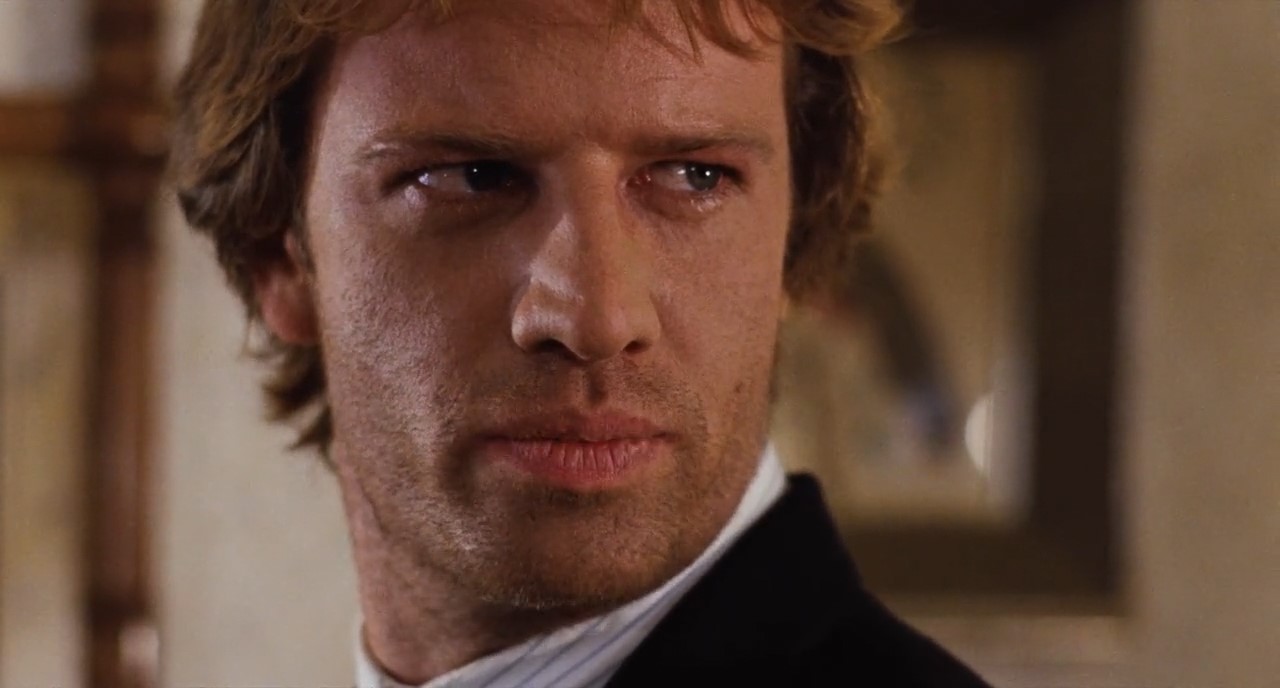
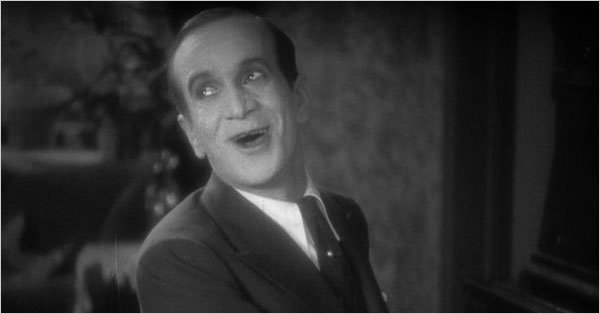
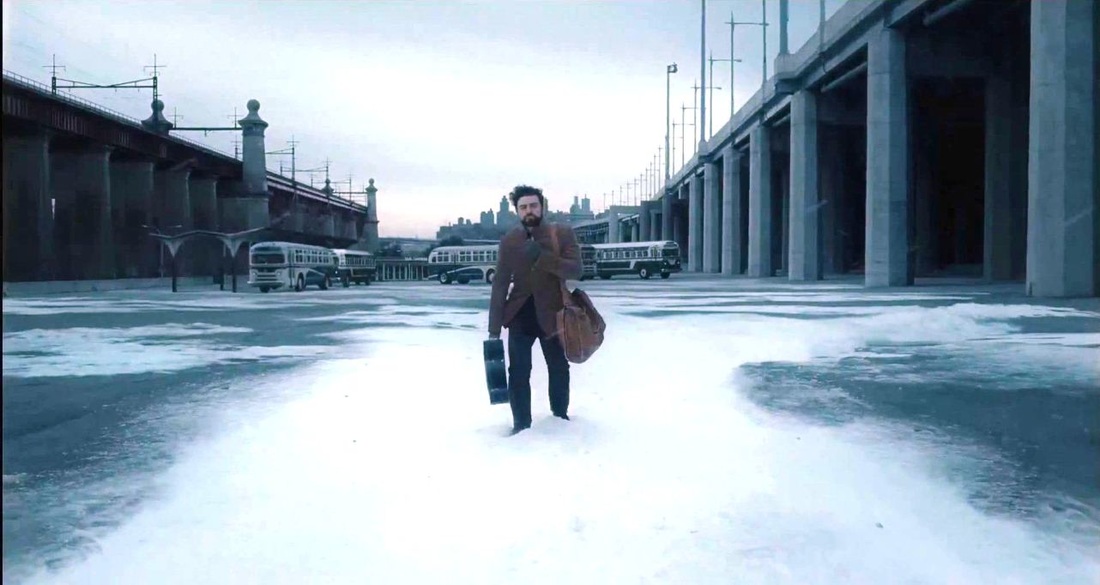
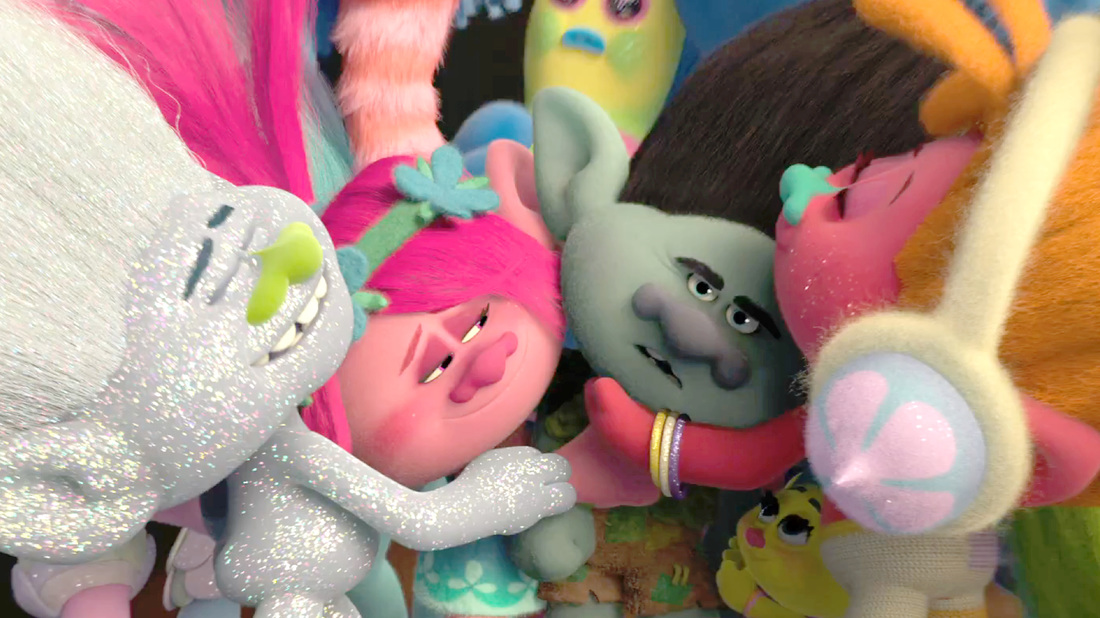
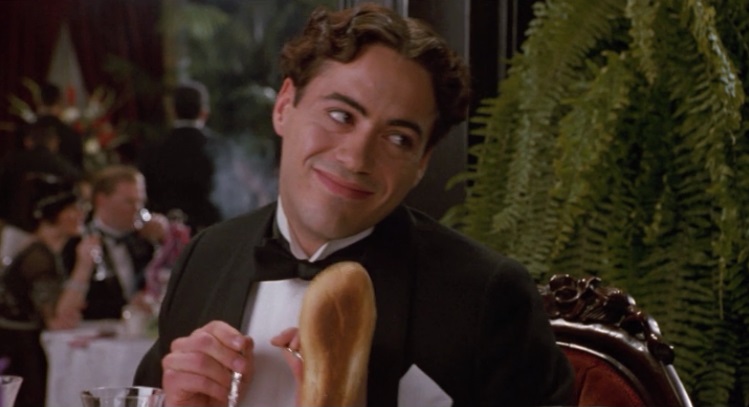
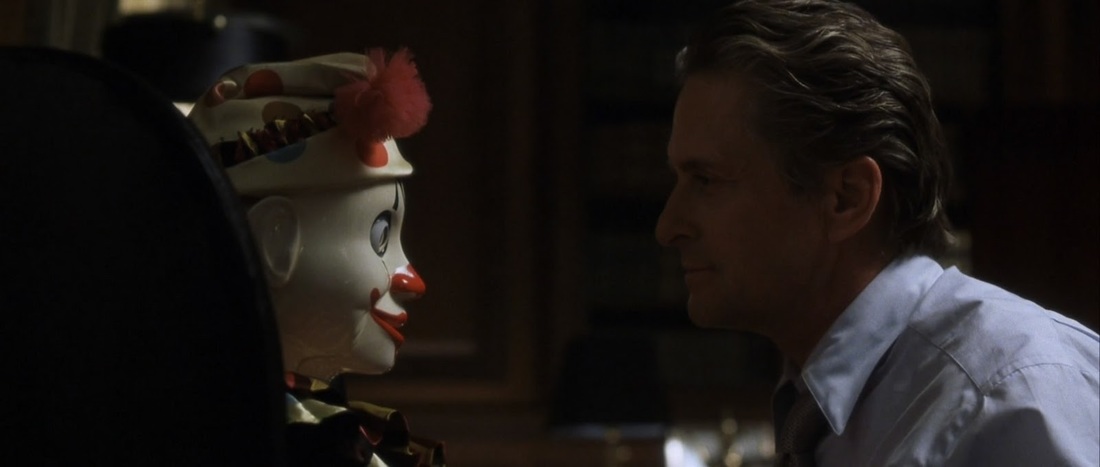
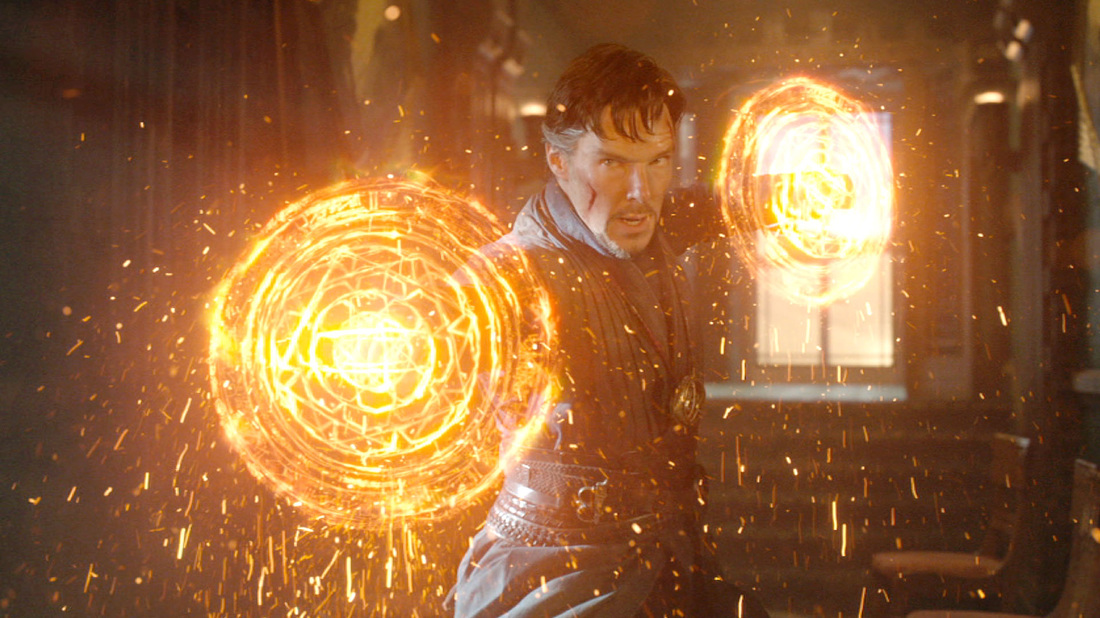
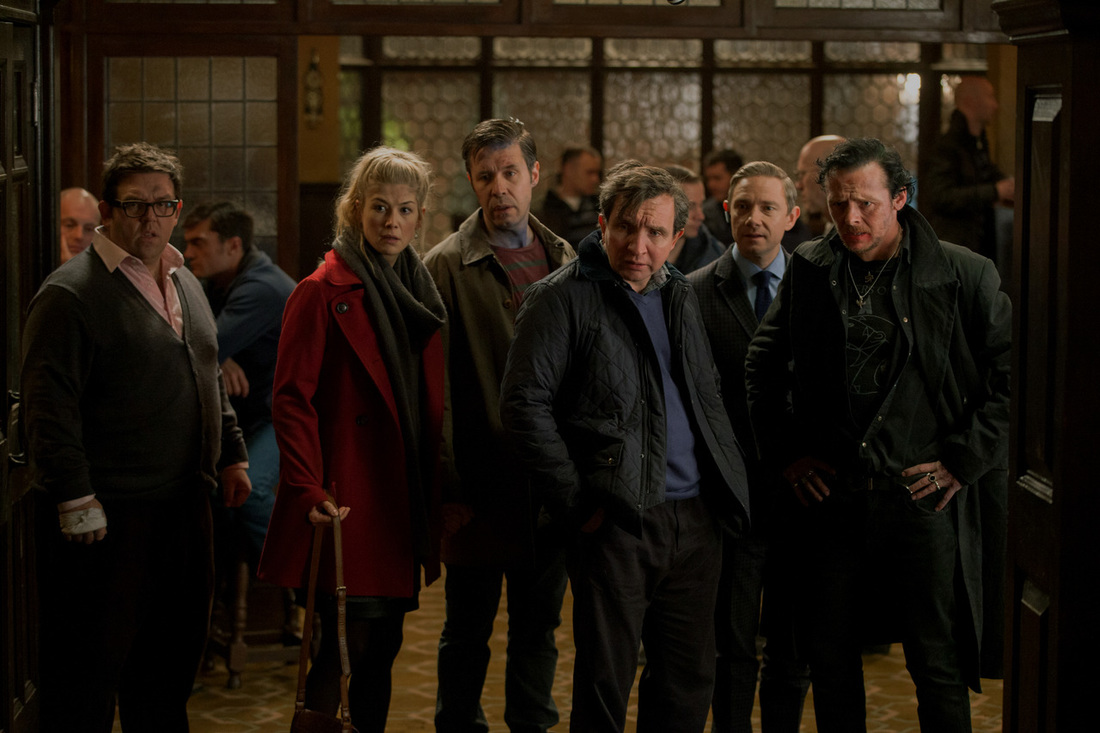
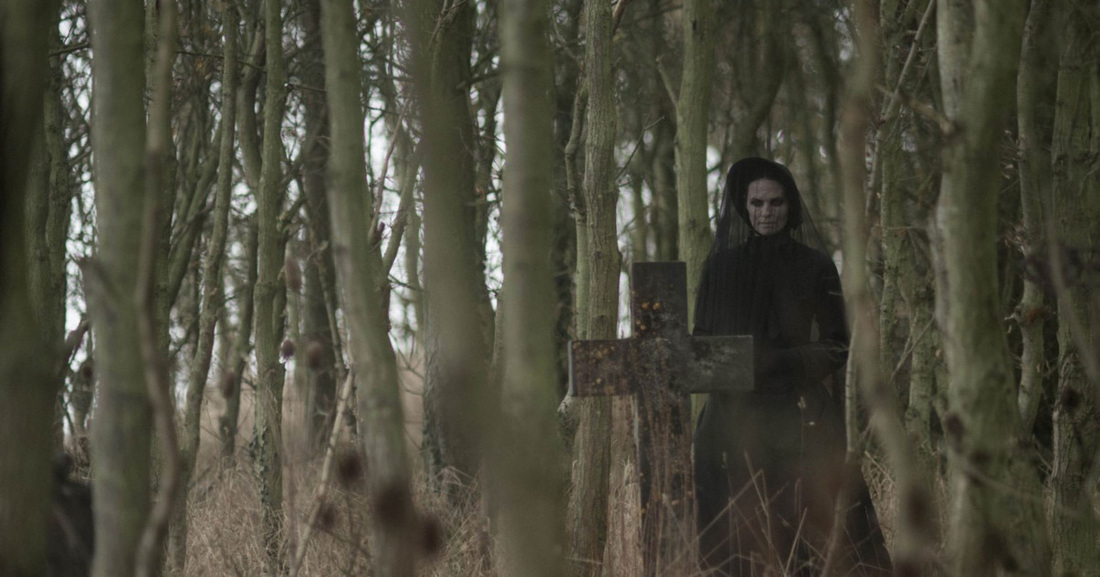
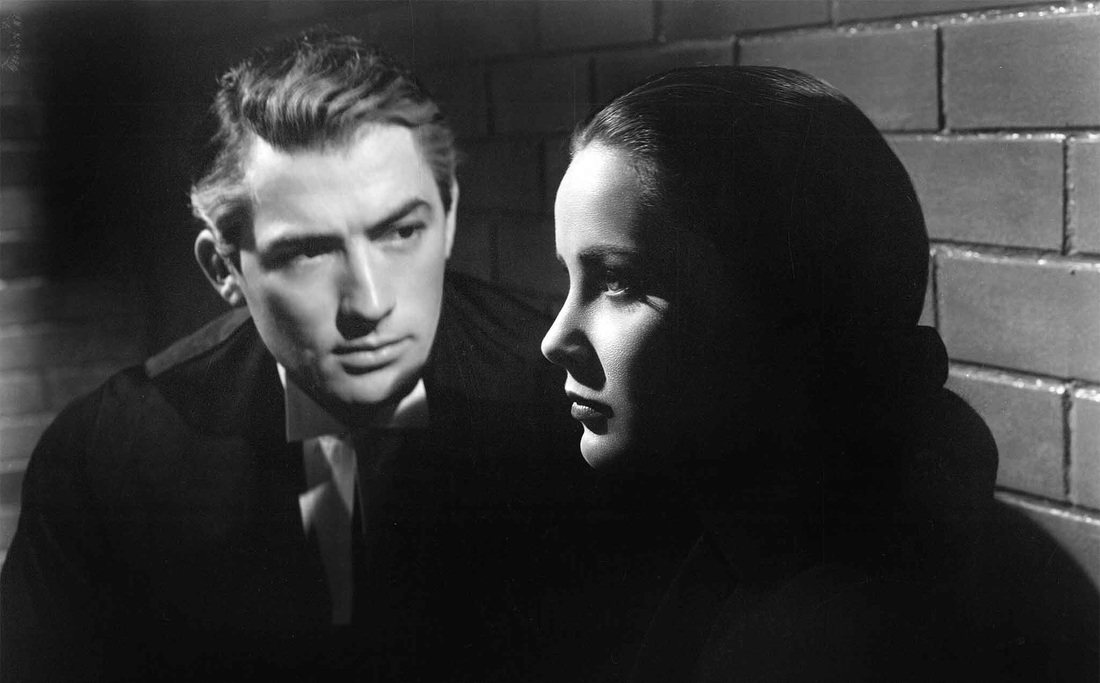
 RSS Feed
RSS Feed